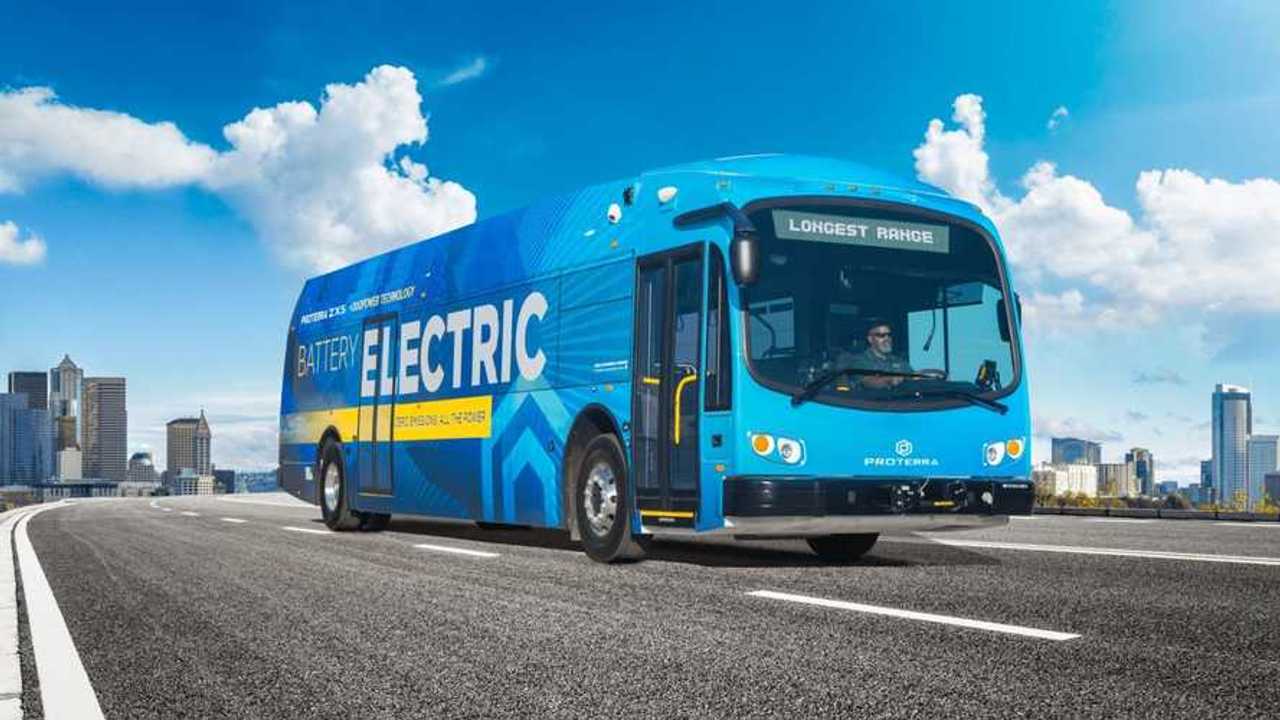
Major Electric Vehicle Company Promoted by Biden Declares Bankruptcy
By Tom Ozimek – 8/9/2023
Proterra, the California-based electric vehicle (EV) company touted by President Joe Biden, has filed for bankruptcy.
The company, which made electric buses and parts for EVs, cited “various market and macroeconomic headwinds” in announcing on Aug. 8 that it was filing for Chapter 11 bankruptcy protection.
The firm, which Mr. Biden once praised for helping America get in the game of trying to become the world’s biggest manufacturer of electric buses, said it was seeking bankruptcy protection as it tries to raise more operating capital or find a buyer.
“Well, you’re making a big difference, man,” President Biden said during a 2021 virtual tour of a Proterra facility. “We have a lot of catching up to do, but we’re going to be in a position where we ought to own the future,” he continued, adding that the United States should set its sights on becoming the single most significant supplier of EVs and buses in the world.
“Right now we’re running way behind China, but you guys are getting us in the game,” the president added.
China is the world’s leading manufacturer of EVs and the Biden administration has made bridging that gap one of its priorities as it pursues aggressive net-zero emission goals as part of its fight against climate change.
Proterra, which, besides making electric buses exports its battery technology to European and Asia-Pacific markets, plans to sharpen its focus on supplying batteries, according to its CEO, Gareth Joyce.
“While our best-in-class EV and battery technologies have set an industry standard, we have faced various market and macroeconomic headwinds, that have impacted our ability to efficiently scale all of our opportunities simultaneously,” Mr. Joyce said in a statement.
In its Chapter 11 petition, Proterra listed assets and liabilities of at least $500 million. In June 2021, the company went public by merging with a blank-check company, with its shares falling since then from around $15 to under $2.
Ties to Biden Administration
Proterra has been closely linked to the Biden administration.
In February 2023, Mr. Joyce was appointed by Mr. Biden to serve on the President’s Export Council, with the company and its chief getting a shoutout from the commander-in-chief.
“Through his leadership, Joyce is growing Proterra’s EV battery manufacturing footprint in the United States and accelerating the transition of transit and other commercial vehicles to zero emission solutions,” Mr. Biden said in a statement at the time.
Energy Secretary Jennifer Granholm once served on Proterra’s board of directors and, several months after assuming her government role, she sold around $1.6 million worth of Proterra shares after facing conflict-of-interest criticism.
“While we are pleased that Secretary Granholm has eventually done the right thing and divested herself from Proterra, many questions remain unanswered,” Michael Chamberlain, the director of Protect the Public’s Trust, said in May 2021 after Ms. Granholm sold her Proterra shares.
The company also stood to benefit from Mr. Biden’s $1.2 trillion infrastructure bill that included around $5 billion to replace existing school bus fleets with fully electric or hybrid buses.
The Biden administration has set a goal for all U.S.-made buses to be zero emission by 2030.

Most EVs Cost More To Drive Than Gas-Powered Rivals
Amid the Biden administration’s push towards electrifying transportation in the United States, a recent study showed that, for the most part, it costs less to drive traditional gasoline-powered vehicles than their electric counterparts.
While many EV advocates claim operating cost affordability as an argument in favor of ditching internal combustion engine cars and trucks, a recent study from Anderson Economic Group (AEG) shows that this argument does not hold water.
In AEG’s analysis of vehicle fueling costs, the vast majority of gasoline-powered cars and crossovers sold in the United States cost less to fuel than their electric counterparts to charge.
“With electricity prices trending up and gas prices going down, most traditional gas-powered vehicles cost less to drive than their EV counterparts,” the consulting group wrote in the study.
In the Entry segment (e.g., Chevy Bolt, Honda Civic), home-charged EVs cost $12.55 per 100 miles to operate, compared to $9.78 for gasoline models. Commercial EV charging costs $15.97 per 100 miles.
Similarly, in the Mid segment (e.g., Chevy Malibu, Honda Accord), EVs cost $12.62 (home charging) and $16.10 (commercial charging), while gas cars cost $11.08 per 100 miles.
Trucks show a narrower gap, with home-charged EVs at $17.72 and gasoline at $17.58 per 100 miles. Commercial EV charging surges to $26.38.
Luxury EVs (e.g., Tesla Model X) cost $13.50 (home) and $17.81 (commercial) per 100 miles to charge, with home charging outmatching gasoline-powered counterparts, which cost $17.56 to run.
The findings build on an earlier January 2023 study by the same group, which found that rising energy costs and falling gasoline prices in the fourth quarter of 2022 put the cost of charging EVs higher than the cost of fueling gas-powered vehicles for the first time in 18 months.
Tom Ozimek is a senior reporter for The Epoch Times. He has a broad background in journalism, deposit insurance, marketing and communications, and adult education.

In my case, driving a Chevy Volt for the past 7+ years, EV driving beats ICE driving by a wide margin. Gasoline would have be priced at about 35 cents/gallon to be competitive with EV driving in my situation.
But I suppose I’m an outlier, driving only about 5000 miles per year and charging only at my power company’s off-peak prices. Even if charging at peak times, my EV driving would be the cost-equivalent of ICE driving at about $1.65 per gallon, which still beats current day gas prices of over $4.50 per gallon.